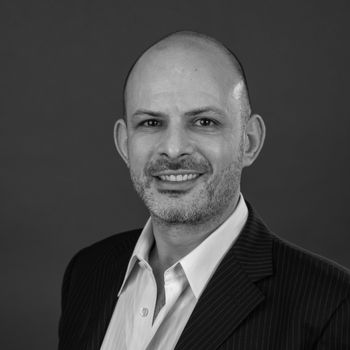PROF GIORDANO: Dr. Gay– The epitome of a problematic higher education system
The fact that it took nearly a month for Dr. Gay to resign and the widespread support encouraging her to remain in her position, reveals the broader issues that plague higher education.
Nicholas Giordano is a professor of Political Science, the host of The P.A.S. Report Podcast, and a fellow at Campus Reform’s Higher Education Fellowship. With 2 decades of teaching experience and over a decade of experience in the emergency management/homeland security arena, Professor Giordano is regularly called on to speak about issues related to government, politics, and international relations.
Although the announcement of Dr. Claudine Gay’s resignation is a positive development, it does not erase the stain on Harvard’s reputation. The fact that it took nearly a month for Dr. Gay to resign and the widespread support encouraging her to remain in her position, reveals the broader issues that plague higher education. Harvard University is a microcosm for the decline of higher education. Higher education’s challenges extend beyond any one individual.
Harvard has cultivated a culture of intolerance and allowed anti-Americanism and antisemitism to fester. There is little regard for ideological diversity at this Ivy League, substantiated by its ranking as the worst school for free speech. Sadly, however, the erosion of critical inquiry, the pursuit of truth, meritocracy, and scholarship is a nationwide phenomenon. These values have been replaced by the Diversity, Equity, Inclusion, and Social Justice (DEISJ) agenda where intellectual rigor and merit no longer exist.
[RELATED: ANALYSIS: Harvard president Claudine Gay is a hypocritical fraud]
The Dr. Gay debacle exemplifies the DEI virus that has infected higher education. She could not even offer a simple condemnation of antisemitic protests at her university. Since then, nearly 50 plagiarism accusations have emerged against Dr. Gay where, in some cases, she lifted entire passages from other people’s texts, including the works of Dr. Carol Swain. The stark contrast between how former Harvard President Larry Summers and Claudine Gay have been treated illustrates why Harvard University can no longer be considered the prestigious institution it once was.
In a speech, Summers had the audacity to suggest that gender disparities within STEM fields are the result of natural differences between men and women. When Summers’ speech became public, the reaction was swift. Harvard faculty quickly issued a no-confidence vote and forced Summers to resign, but in Dr. Gay’s case, the Harvard Board and over 500 faculty members rallied to support her.
In academia, plagiarism is a cardinal sin, so the double standard is glaringly obvious. My students would immediately fail if they engaged in plagiarism, and they could face further academic disciplinary actions. College faculty and administrators, particularly college presidents, should be held to higher academic standards than the student body, given their role within the academic community.
[RELATED: Harvard president Claudine Gay resigns]
This is an embarrassment to my profession and a betrayal of the principles academia is meant to uphold. According to the DEISJ overlords, DEISJ takes precedence over competency and academic integrity. Examples like this underscore why so many have little confidence in our higher education institutions, and it is why many employers are ditching 4-year degree requirements.
I have been a staunch critic of the DEISJ movement and the cultural rot emanating from our college campuses. Through lower standards, the DEISJ agenda led to the wholesale corruption of our institutions. This pervasive agenda is deeply rooted in anti-American ideology and fosters a victimhood mentality where entire groups of people are categorized as oppressor or oppressed. In order for our institutions to begin to repair themselves and rebuild trust, this toxic ideology must be destroyed, and individuals like Dr. Gay should not remain in the higher education system.
Editorials and op-eds reflect the opinion of the authors and not necessarily that of Campus Reform or the Leadership Institute.

